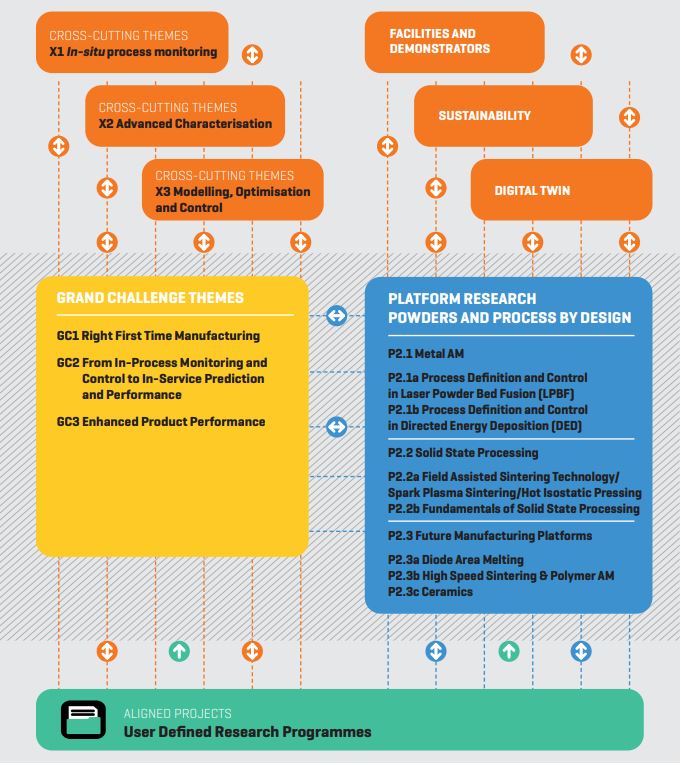Research Programmes /
BACKGROUND
& OVERVIEW
Our collaborative and interdisciplinary research and innovation programme is delivering new understanding and impact across the following themes:
Particulate science and innovation.
Powders will become active and designed rather than passive elements in their processing. Control of surface state, surface chemistry, structure, bulk chemistry, morphologies and size will result in particles designed for process efficiency / reliability and product performance.
Integrated process monitoring, modelling and control technologies.
New approaches to powder processing will allow us to handle the inherent variability of particulates and their stochastic behaviours. Insights from advanced in-situ characterisation will enable the development of new monitoring technologies that assure quality, and coupled to modelling approaches allow optimisation and control.
Sustainable and future manufacturing technologies.
Our approach will deliver certainty and integrity with final products at net or near net-shape with reduced scrap, lower energy use, and lower CO2 emissions. Recoupling the materials science with the manufacturing science will allow us to realise the potential of current technologies and develop new homegrown manufacturing processes, to secure the prosperity of UK industry.
MAPP is delivering on the promise of advanced powder processing technologies through the creation of new, connected, intelligent, cyber-physical manufacturing environments to achieve ‘right first time' product manufacture.
MAPP’s research agenda covers emerging powder-based manufacturing technologies: spark plasma sintering (SPS), freeze casting, inkjet printing, layer-by-layer manufacture, hot isostatic pressing (HIP), and laser, electron beam, and indirect additive manufacturing (AM). MAPP covers a wide range of engineering materials where powder processing has the clear potential to drive disruptive growth - including advanced ceramics, polymers, metals, with our initial applications in aerospace and energy sectors - but where common problems must be addressed.

